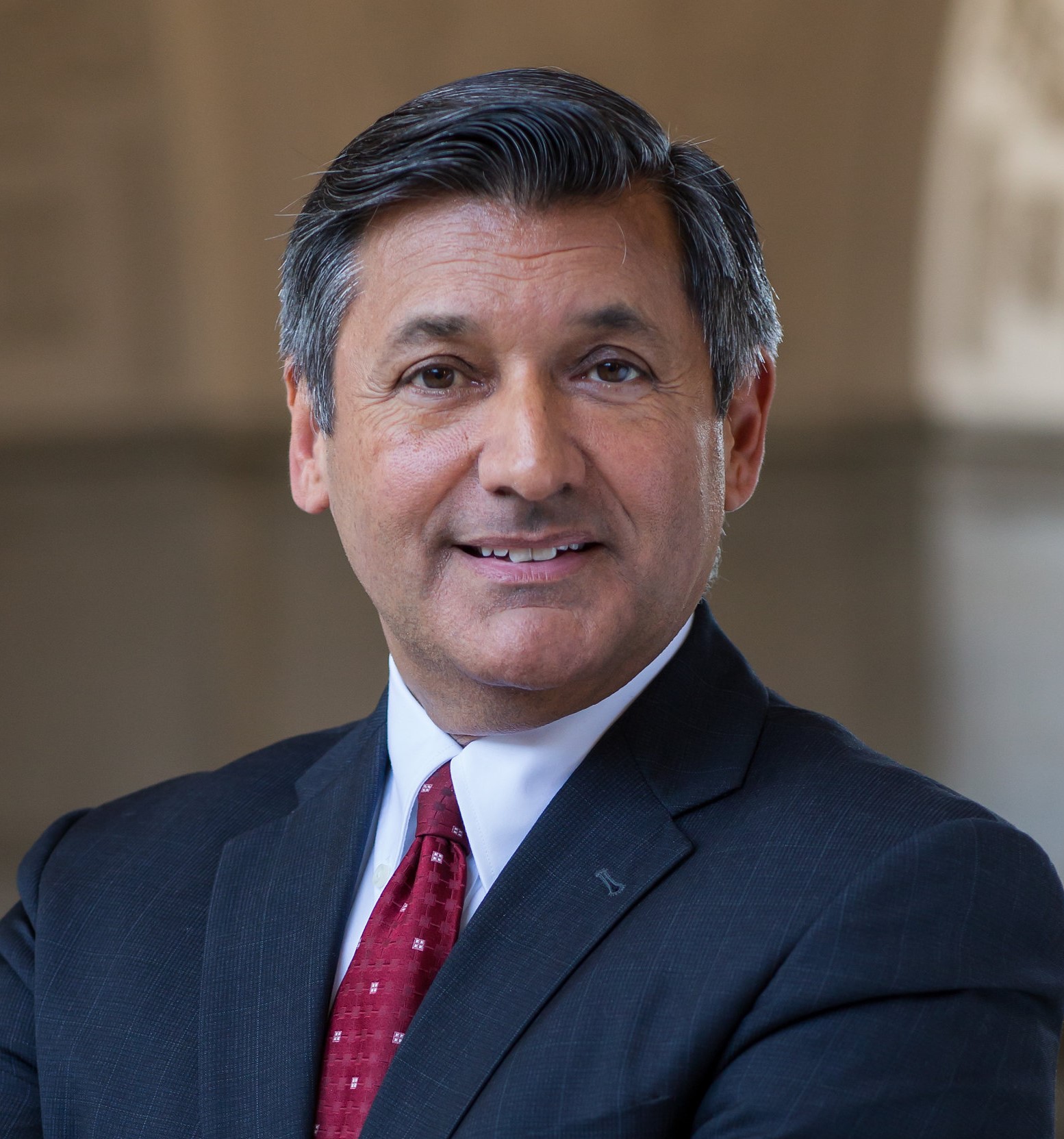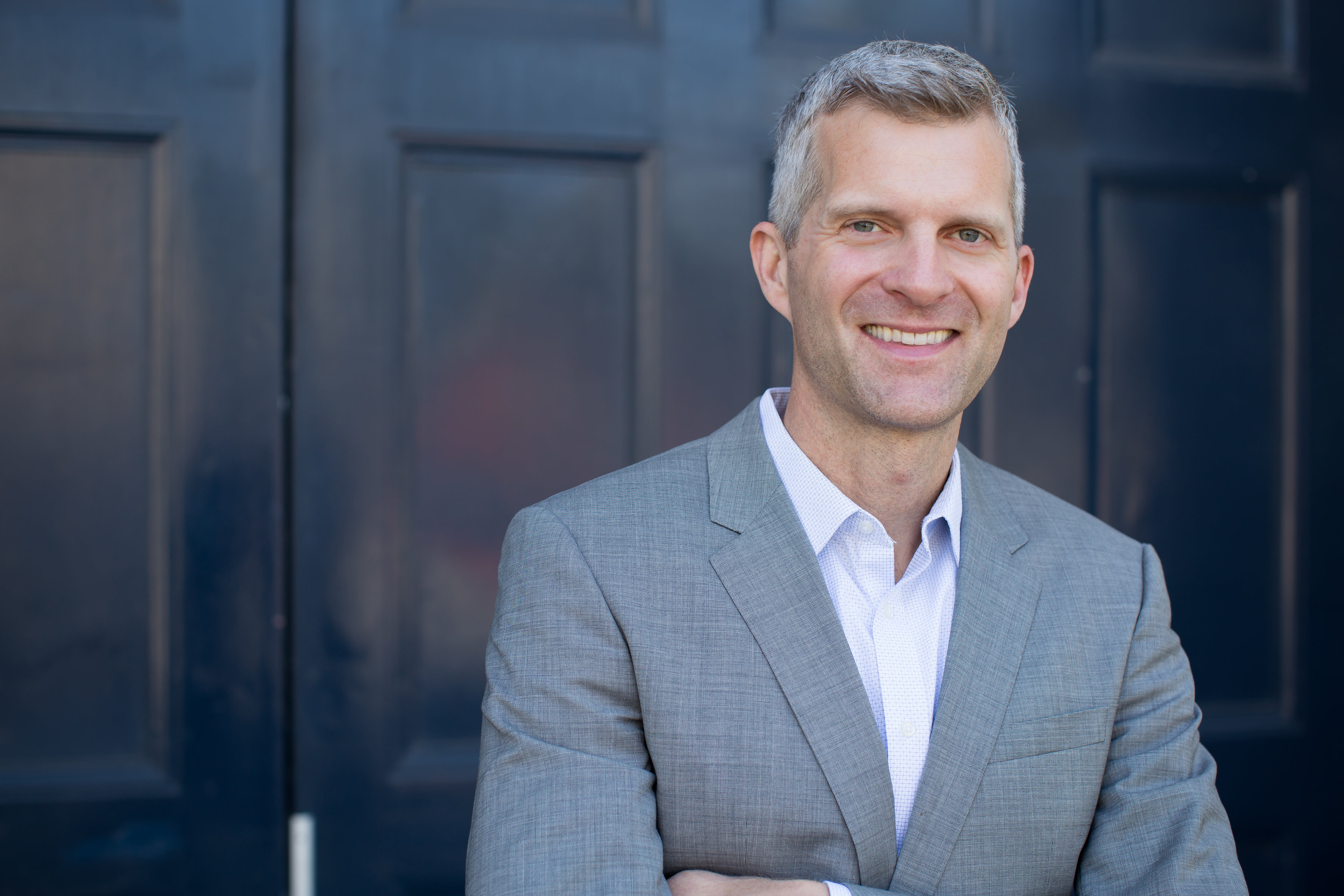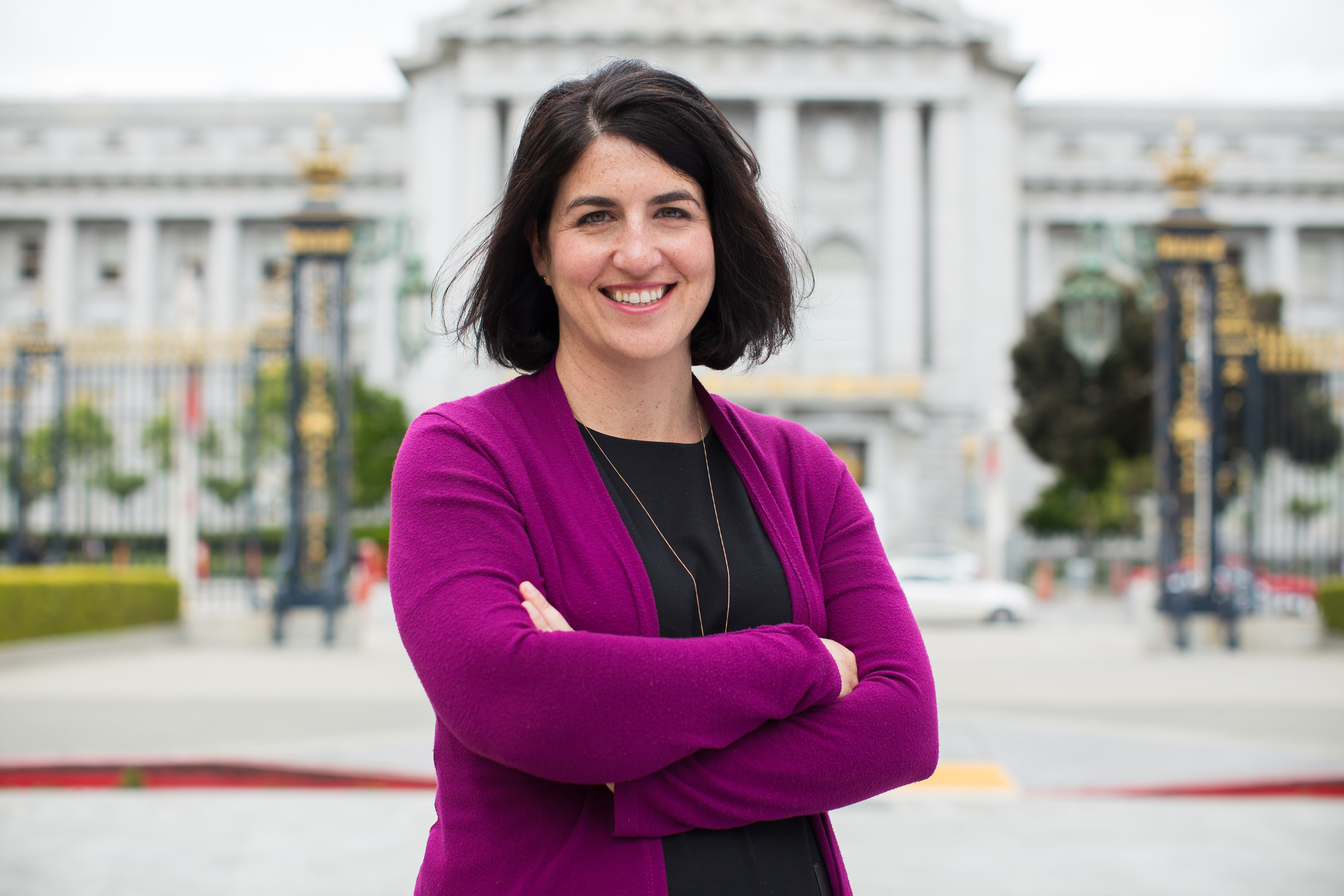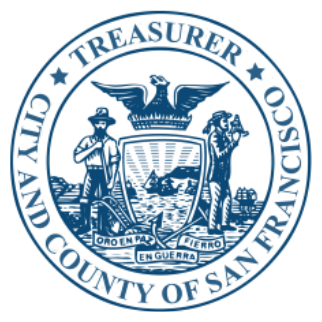Overview
The position of San Francisco Treasurer is an elective office created by the City Charter in 1850. In July 1979, a charter amendment added the office and duties of Tax Collector to the Treasurer’s responsibilities. The Office of the Treasurer & Tax Collector serves as the banker, collection agent, and investment officer for the government of San Francisco, the only combined city and county in the state of California. The Office of the Treasurer & Tax Collector serves two basic functions for the citizens of the City and County of San Francisco:
- The collection of taxes and other city and county revenue. Through mail, in person in the City Payment Center, and now through the Internet, the Office collects and deposits taxes and other obligations paid to the City, including business taxes, property taxes, and fees for various business licenses and permits that are required by the Municipal Code. Tax Collection units collect over $5 billion annually in property taxes, business taxes, and license fees. Additionally, the Office investigates and collects unreported and delinquent tax obligations. Through the City Payment Center and the SFGov on-line City Services website, the Office contracts to collect current and delinquent obligations owed to other City Departments, such as the Water Department and Department of Public Health.
The conservation and oversight of monies before disbursement. The Treasurer manages all city funds in order to gain the maximum return with low risk and high liquidity, including investing the City’s portfolio of pooled funds. The Treasurer works with all City departments to ensure that funds are received, deposited, and reconciled as quickly and accurately as possible, so as to provide maximum interest and investment returns for the people of San Francisco. The Office administers and monitors the deposit accounts and wire transactions of all City agencies and contracts with banks for financial services. The Office also disburses payments on the City’s General Obligation municipal bonds.
Organizational Chart

Accomplishments
Effective Tax Collection & Customer-Centric Service Delivery
Over the past three fiscal years, revenues collected by the Office have grown by nearly 20 percent. Paired with a corresponding increase in the complexity of collected taxes, the Office has seen an unprecedented volume in all areas of work. In FY 2015-16 the Office had over 180,000 online business tax filings, 1,738,000 payment transactions, 54,000 payment exceptions, 100,000 calls into 311, 220,000 property tax parcels with varied payment dates, 18,000 department licenses, and over 20,000 refunds. In order to accomplish continued growth in revenue without increasing staffing levels, the Office has committed to aggressive schedules to modernize technology and optimize daily work practices to meet the needs of taxpayers. The focus on quality service and communication has improved our average speed of answer from five minutes to three and a half minutes, with almost 50 percent of the incoming calls being answered in less than one minute. Close to three-quarters of the calls to 311 are resolved without escalation to TTX.
Small Business Improvements
The Office continues to increase efficiency and focus on critical impact areas such as the rise of independent contractors, short-term rental hosts, and other new taxpayers requiring more intense and targeted communications and services. Partnership and investment in both 311 and the Business Portal have helped the Office serve more taxpayers through online and phone channels, and optimize overall communication. The Office successfully worked with the Mayor’s Office and the Board of Supervisors to pass legislative changes to the business tax penalty structure to improve equity for small businesses and increase overall tax compliance. The legislative package removed the $100 minimum fee as one of the penalties for failing to register with the Tax Collector and removed the fee and administrative requirements for obtaining a duplicate registration certificate. In our ongoing efforts to make tax reporting accessible to all San Franciscans, the Office produced several multi-lingual videos to help taxpayers register a new business and file an annual return.
Technology-Enabled Operations
Over the past year, the Financial Justice Project has worked with city partners on a multitude of reforms of fines and fees that disparately impact low-income communities of color. Highlights include lifting more than $32.7 million in debt from 21,000 people’s unpaid criminal justice administrative fees, eliminating public library fines on overdue materials in partnership with the San Francisco Public Library, and clearing 88,000 cases of suspended driver’s licenses for people who failed to appear in traffic court. The most recent accomplishment involved partnering with the Mayor and Sheriff to make all phone calls in San Francisco’s jails completely free for incarcerated individuals, which national research shows can increase safety in jails, reduce recidivism rates, and improve the reentry process for people exiting the criminal justice system.
Financial Justice
San Francisco is the first city in the nation to launch a Financial Justice Project to assess and reform how fees and fines impact our city’s most vulnerable residents. This often will seek to mitigate the negative impacts of fines and fees on people, seeking to make government a driver of equity. The Treasurer’s Office was the first in the nation to create an Office of Financial Empowerment that aims to build up San Franciscans’ financial reserves. It has started many programs, including Bank on San Francisco and Kindergarten to College (K2C) that help people enter the financial mainstream and build their savings. These programs are lauded as national models and have helped tens of thousands of families.
Looking Ahead
Simplification of City Business Processes
In FY 2017-18, the Office of the TreasurerTax Collector will leverage its technology improvements to further improve the efficiency of inter-departmental work with San Francisco businesses. The Office has long been the central place for billing and collection of fees and taxes, and today, city agencies and members of the public are increasingly reliant on the Office’s business data for a variety of functions. This data has been made easily available through the enhanced online business account update and new business registration application. In the upcoming year, the Office will spearhead a procurement process for a credit card processing partner that meets the needs of city departments and extends the City’s overall online commerce offerings. Once this process is complete, residents will be able to engage with the City in ever more convenient ways.
Effective Tax Collection & Service Delivery
After the implementation of several large-scale technology improvements, a joint effort between the Treasurer-Tax Collector, Assessor-Recorder, and Controller to secure and transition to modern property tax and appraisal systems will be a key focus. This effort aims to build a system capable of improving outcomes for stakeholders and achieving accelerated results, thus capitalizing on the strong operational backbone that already enables the Office to move data and transactions through multiple systems. Furthermore, the Office is entering the fourth year of implementation for several new business taxes: the Gross Receipts Expense Tax and Administrative Office Tax, and the new configuration of the Registration Tax. This fiscal year, the Office will create a Compliance & Audit Division: a combination of the Investigations and Audit Divisions with an added data analytics team. As more data is available to the department, enabling diversification of our compliance, audit, and field work approaches, we hope to facilitate greater compliance with San Francisco tax policy on the part of local businesses.
Staff Development
The Office of the Treasurer-Tax Collector will also expand its efforts in staff development. In the upcoming year, the Office will implement professional development programs for managers and critical in-service days for staff. Trainings will emphasize improvement of the overall work environment, coinciding with the roll-out of alternative work schedules and flexible time, office-wide communications and recognitions, and improved work practices with a focus on employee satisfaction.
Biographies
 José Cisneros, Treasurer
José Cisneros, Treasurer
José Cisneros is the elected Treasurer for the City and County of San Francisco. As Treasurer, he serves as the City’s banker and Chief Investment Officer, managing all tax and revenue collection for San Francisco. Appointed in 2004, and first elected in 2005, Cisneros has used his experience in the tech and banking industries to enhance and modernize taxpayer systems and successfully manage the City’s portfolio through a major recession.
Treasurer Cisneros believes that his role of safeguarding the City’s money extends to all San Francisco residents, and continues to expand his role as a financial educator and advocate for low-income San Franciscans through award-winning programs like Kindergarten to College, Bank On San Francisco and the Financial Justice Project. Cisneros served as Vice Chair on the President’s Advisory Council on Financial Capability for Young Americans, and is currently Co-Chair of the Cities for Financial Empowerment Coalition.
Prior to his role as Treasurer, Treasurer Cisneros served as Deputy General Manager for the San Francisco Municipal Transportation Agency. In this capacity, he managed MUNI’s $7 billion capital program designed to repair, replace and enhance system assets – including the 3rd Street Rail extension serving Chinatown, Mission Bay and the residents of Bay View and Hunters Point. Before working at MUNI, Treasurer Cisneros served as a member of the MTA Board of Directors and was instrumental in creating Proposition E, the Muni Reform Charter Amendment.
Treasurer Cisneros has a strong business background in the private sector, previously working for IBM Corporation and Lotus Development Corporation as a Senior International Product Manager. Prior to this, he was an Assistant Vice President at Bank of Boston where he managed financial product portfolios valued at over $100 million.
Treasurer Cisneros lives with his husband in San Francisco. He received his Bachelor of Science from Sloan School of Management at the Massachusetts Institute of Technology (MIT).
 Tajel Shah, Chief Assistant Treasurer
Tajel Shah, Chief Assistant Treasurer
As Chief Assistant Treasurer, Tajel Shah serves as Deputy to José Cisneros and manages investments, banking, cashiering, budget, solutions management, IT and human resources for the Office of the Treasurer & Tax Collector.
Ms. Shah joined the organization in January 2008. Prior to joining the Treasurer & Tax Collector, she managed policy and planning for the Department of Children, Youth and their Families for several years. Ms. Shah comes to the office with a unique blend of public and private sector experience, which includes leading global expansion for Organic Inc. – an internet company and managing several of their Fortune 500 clients. She also served as the first woman of color to lead the national advocacy organization, United States Student Association.
Ms. Shah grew up in New Jersey and holds a B.A. from Rutgers University. She lives in San Francisco with her husband and two children and serves on several boards and commissions, including the San Francisco Unified School District’s Quality Teacher and Education Oversight Committee.
 David Augustine, Tax Collector
David Augustine, Tax Collector
In March 2013, Treasurer José Cisneros appointed David Augustine as San Francisco Tax Collector. The San Francisco Tax Collector is responsible for all tax collection in the City and is the ex offico license collector under California law.
Mr. Augustine joined the Office in 2004 as Policy & Legislative Manager, and was instrumental in the implementation of the Treasurer’s many innovative social programs, including Bank on San Francisco, Kindergarten to College, and the Working Families Credit program. As Tax Collector Attorney he represented the office in a number of bankruptcy proceedings and coordinated collections work with the Bureau of Delinquent Revenue.
Prior to joining the City, Mr. Augustine worked in municipal public finance, and with the New York City Mayor’s Office. He holds a J.D. from Stanford Law School and a B.A. in Political Science from Swarthmore College. He is a member of the California State Bar. He has attended the Senior Executives in State and Local Government program at the Kennedy School, and has served on the IRS Advisory Committee on Tax Exempt and Government Entities. Mr. Augustine is a native of the San Francisco Bay Area and resides in San Francisco.
Amanda Fried, Chief of Policy and Communications
 Ms. Fried oversees taxpayer assistance, communications, legislation and financial empowerment initiatives for the Office of the Treasurer & Tax Collector.
Ms. Fried oversees taxpayer assistance, communications, legislation and financial empowerment initiatives for the Office of the Treasurer & Tax Collector.
Ms. Fried joined the organization in October 2014. Prior to joining the Office of the Treasurer & Tax Collector, she served as Deputy Director in the Mayor’s Office of Housing, Opportunities, Partnerships and Engagement (HOPE) for Mayor Ed Lee, as a Senior Advisor to the Mayor in New York City, and as a legislative aide.
Ms. Fried grew up in Philadelphia and earned a B.A. in Political Science and Urban Studies from Stanford University, and an Masters in Public Administration from the New York University Wagner School of Public Service. She lives in San Francisco with her family.

